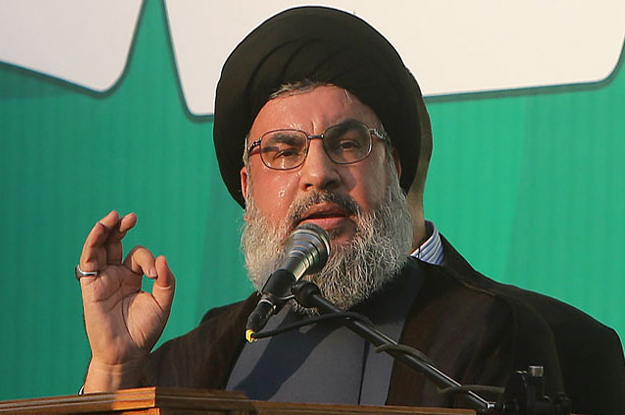
"We went to Syria to help keep the country from falling into the hands of Daesh and Al-Nusra Front," Hassan Nasrallah told Lebanese channel Al-Mayadeen, referring to IS and Al-Qaeda's Syria branch. "So long as we have a responsibility to be there, we will be there."
Nasrallah's live interview came a week after key Assad backer, Russia's President Vladimir Putin, announced the partial withdrawal of Moscow's forces from the war-torn country.
"All that has been said about our withdrawal from Syria is false," the Hezbollah chief said, in response to a question from his interviewer about speculation that the group might pull out too.
"Whether the Russians leave or stay -- more than that, whether the Iranians leave or stay... we, Hezbollah... our fate and the fate of our Syrian brothers is one and indivisible," Nasrallah said.
Iran-backed Hezbollah has deployed thousands of fighters into Syria's war. The group first announced it was fighting alongside Assad's troops in 2013.
"If Syria falls into the hands of Daesh and Al-Nusra, Syria is finished, Lebanon is finished," Nasrallah said, echoing previous claims that Hezbollah had entered into Syria's war in order to avert the spread of extremist forces into Lebanon.
"We must stay until this goal (the defeat of the extremists) is reached, whether that is with the extremist groups' withdrawal from Syria or with a political solution," he added.
The interview came as regime and opposition delegations gathered in Geneva for indirect negotiations to try to end a war that has left more than 270,000 people dead since 2011.
"We are still capable of sending more forces to Syria," Nasrallah said. "But we don't think like those who don't want a political solution. We want a political solution."
Hezbollah has played a key role in propping up Assad's regime, and is an arch enemy of both Syria's rebels and their backer, Sunni powerhouse Saudi Arabia.
Earlier this month, the six monarchies that form the Gulf Cooperation Council (GCC), including Kuwait and Bahrain, decided to class Hezbollah as a "terrorist" group.
Branding Hezbollah a pawn of regional rival Iran, Kuwaiti authorities expelled 11 Lebanese and three Iraqis over alleged ties to the group, a Kuwaiti newspaper reported Monday.
Bahrain on March 14 said it had expelled an unspecified number of Lebanese for alleged Hezbollah membership.
The GCC's classification of Hezbollah as a "terrorist" organisation came amid a spike in tensions between Iran and Saudi Arabia, which are steeped in several wars for regional influence, including in Syria and Yemen

1725784957-0/Tribune-Pic-(17)1725784957-0-165x106.webp)
1724760612-0/Untitled-design-(12)1724760612-0-165x106.webp)














COMMENTS
Comments are moderated and generally will be posted if they are on-topic and not abusive.
For more information, please see our Comments FAQ